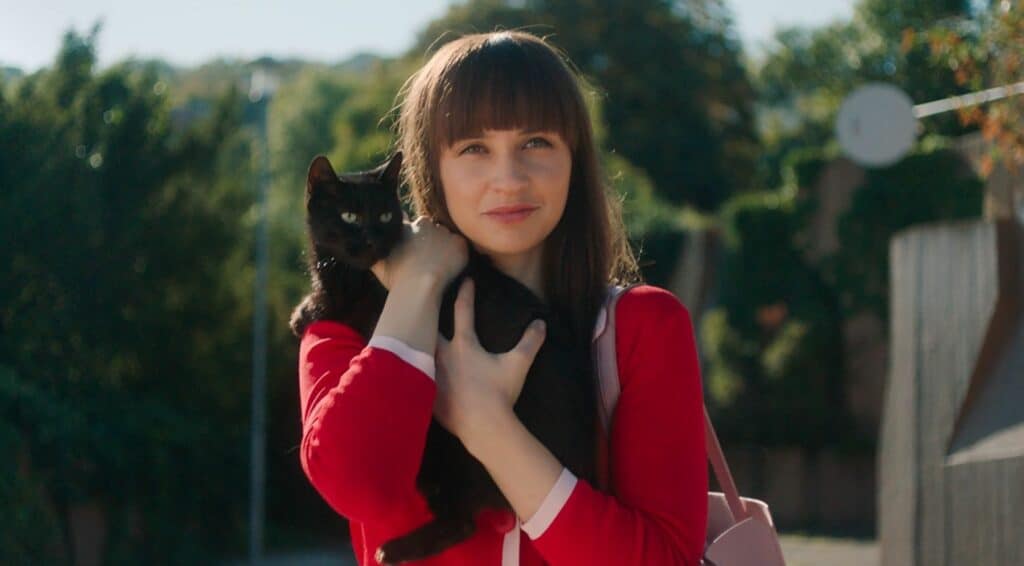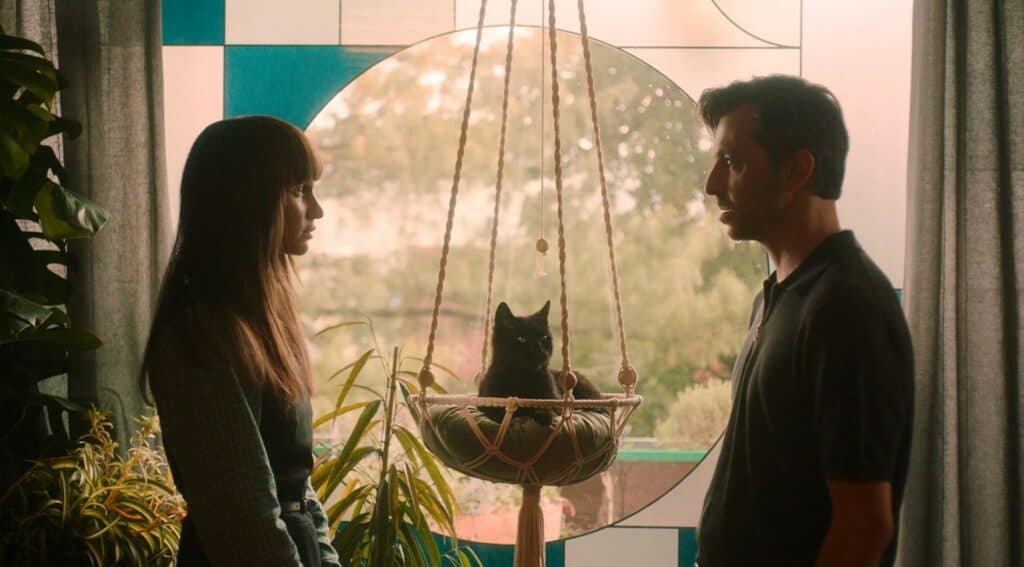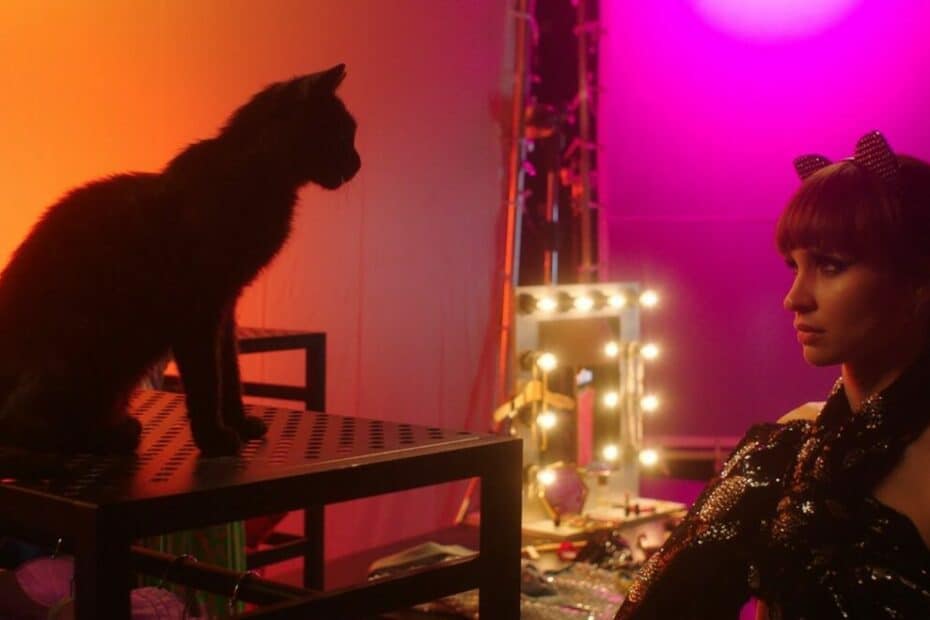Cat Call (Cicaverzum) is the debut feature by Rozália Szeleczki, following three shorts. The film is part of the Hungarian Incubator programme, just like White Plastic Sky and Without Air (Elfogy a levegő). Fáni (Franciska Töröcsik is a 30-year-old architect. To her family’s chagrin, she is still single. The main reason seems to be that whenever she is attracted to a man, she foresees his death due to a childhood trauma involving her father. When her new colleague, Mihály (Csaba Polgár), becomes her neighbour, she becomes infatuated – with his black cat, who she hears talking to her. Is the cat in question also a singer who dreams of a rap career? You know that he is!
Cat Call may not be based on a true story, but the theme has biographical connections to the director. There is also a link to Szeleczki’s third short, Since She’s with Me (Mióta velem jár 2019), which depicts an 8-year-old girl who shows up in her rock star father’s life in the 1980s Budapest. Cat Call might be described as a rom-com even though it deals with some dark themes. The director labelled the film an author-driven drama when I interviewed her.
The film begins in a cemetery, where we see Fáni walking in slow motion while the credits are shown on the tombstones. She falls in a handsome grave digger’s arms but immediately visions him falling into the grave and dying.

When will the cat call?
She ends up at her father’s grave, where she falls asleep. She is woken up by her mother and grandmother, who have shown up with a cake for her 30th birthday. They are also bringing a man who is so uninteresting that she gets no deadly vision of him at all. Then, the story moves to the architect’s office, where Fáni’s presentation is interrupted by the arrival of Mihály. She is the only female architect there, and it’s obvious that she doesn’t get or command much respect. Once at home, she meets Mihály and the cat, who immediately starts talking to her. He warns her about Mihály and claims that he left his wife and three children.
She is gradually smitten, even though she is allergic to cats, and the story escalates from there. The original title, Cicaverzum, implies an alternative universe, and in many ways, that’s where the film takes place, at least on the surface. From the name of the magazine, Fáni reads, to the cat food that seems to be addictive, cat puns come at a steady, purring pace. Still, Fáni seems to be more shaken, not purred by the events. The script by the director and Zsófi Kemény manages to put a spin on a story we’ve seen numerous times before. They are amply aided by Töröcsik’s performance that rolls with all the absurdities of the plot, whether they are realistic or fairytale-like.

Other major contributions come from cinematographer Kristóf M. Deák,1 He should not be confused with the director Kristóf Deák, who won an Oscar for his short film MIndenki in 2017. and not least the Production designer Pater Sparrow. (The latter is also the director of the marvellous film 1, reviewed here.) On a very modest budget, they managed to create a world that is generally normal but with single elements that are dream-like or strange in some way. The costume design by Juli Szlávik is another important factor here. The film is constantly colourful and visually appealing, and Fáni seems to have a weakness for round shapes.
If one would like to draw cinematic parallels (which I would like), the most obvious is Liza, the Fox-Fairy (Liza, a róka-tünder 2015). Not least for the amount of violence, which is quite unusual in this kind of film. The director mentioned some non-Hungarian film as a reference instead, but I haven’t seen it. The story is full of twists and turns that will not be revealed here. Suffice it to say that there will be a light at the end of the surprisingly dark tunnel, and there are implications that with the power of pawsitive thinking, one could overcome any trauma.
Seen at the Black Nights Film Festival in the First Feature Competition.

